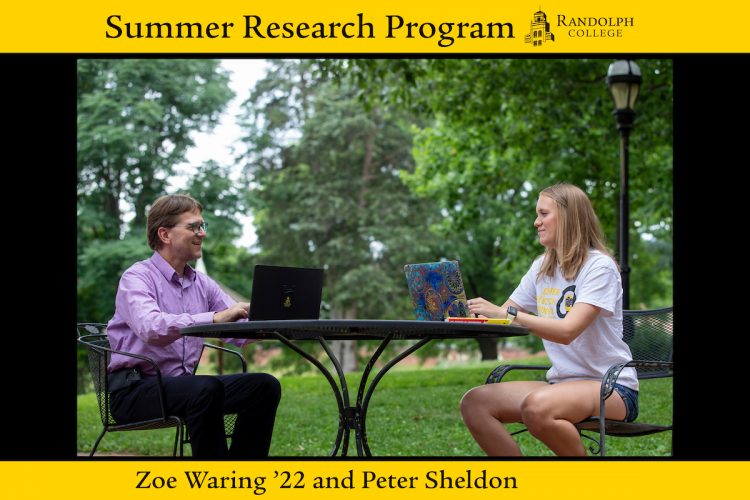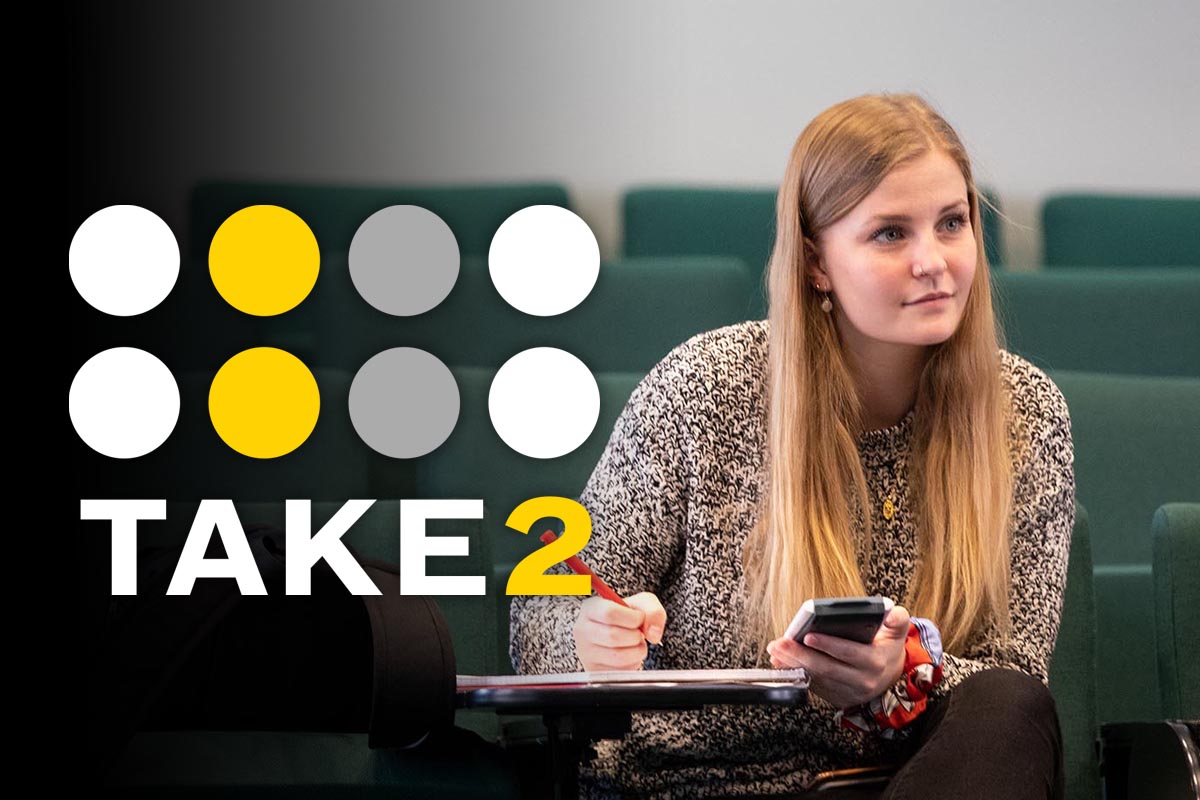A hands-on approach: Summer Research focusing on curriculum guide for teachers
This story is part of an ongoing series featuring the work of faculty and students participating in Randolph’s Summer Research Program, which is being held virtually this year due to COVID-19.

When Zoe Waring ’22 took physics in high school, the opportunities for hands-on learning were few and far between.
“If there were any, it was in really small amounts,” said Waring, now a physics major at Randolph. “It was the same in all the other sciences.”
So when physics professor Peter Sheldon sent out an email proposing a summer research project that could directly help other students in the same position, Waring jumped at the chance to participate.
The Science Festival curriculum guide she’s now creating for her Summer Research Project is full of activities teachers can use in their own classrooms. It’s the kind of work she wishes was available when she was in school.
“I just wanted to help create something that was useful for all ages to help them learn the sciences in a hands-on way, as opposed to learning it on a blackboard or a smartboard,” she said. “I was definitely passionate about that.”
The curriculum guide will include lesson plans and activities for children in pre-K through 12th grade tied to SciFest activities like the Pi Run and Science Day. When appropriate, she’s also connecting them to math and science SOLs.
Waring is also using materials from a variety of outside sources, like the activities she recently found on NASA’s website that incorporate data from actual missions.
“It’s going to be pretty substantial,” she said. “I just finished all the lesson planning. There’s the part where you have to come up with the activities, then you map it to a lesson plan. You have to completely describe it and match it to the SOL. I did all of that for the Pi Run. The next thing is to take Science Day and do that for the rest of the activities and also start putting together a way to assess the effectiveness of this curriculum guide.”
That assessment has become an important piece of the project, which is funded by a grant from the Greater Lynchburg Community Foundation, Sheldon said.
“We do lots of different hands-on outreach for all ages, all year long, and the assessment of it is really very secondary to the outreach in general,” he said. “To be responsible, we need to think about if what we’re doing is useful. It’s really trying to get at what teachers want, and how we figure that out.”
Once she’s completed the curriculum guide, Waring will turn her focus to researching ways they can assess its effectiveness.
“It’s going to be a social science assessment,” Sheldon said. “It’s going to be some kind of qualitative research in the sense of surveys. We can do quantitative research, where we get student grades. You get student grades before and you get student grades after. You get SOL scores before and after. But at the very base level, let’s just assess how it’s used. We’ve got to see if this is useful.”
Sheldon said they also plan to do some virtual focus groups, during which they can talk to teachers and administrators directly about their needs.
The project is something of a continuation of past research done in relation to the teacher institutes that were held annually at Randolph for a decade until a couple years ago, Sheldon said. Funded by the State Council for Higher Education of Virginia, they offered training and additional resources to area science teachers.
The institutes were also a good opportunity for students to conduct research, adding to the academic literature on what works to engage and increase academic performance of teachers and students in science.
“It was researching what kinds of classroom activities work and what kinds don’t, how to get students and teachers involved,” Sheldon said. “When that ended, as well as looking for other sources of funding to continue that project, we thought, ‘OK we’re not doing that for teachers anymore, what can we do?’ And one of the things we decided on was to create a curriculum guide that we would share with teachers.
“It’s going to be as long as it takes,” Sheldon said of the guide. “It’s a big undertaking.”
Tags: Peter Sheldon, physics, Randolph College Science Festival, scifest, student faculty research, summer research, summer research 2020
